Search
Did you mean: Iliad?
Remove Ads
Advertisement
Summary 
Loading AI-generated summary based on World History Encyclopedia articles ...
Search Results
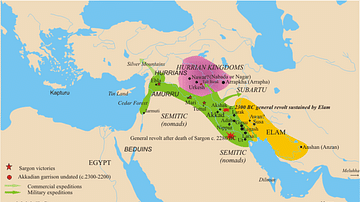
Definition
Akkad and the Akkadian Empire
Akkad was the seat of the Akkadian Empire (2334-2218 BCE), the first multi-national political entity in the world, founded by Sargon the Great (r. 2334-2279 BCE) who unified Mesopotamia under his rule and set the model for later Mesopotamian...
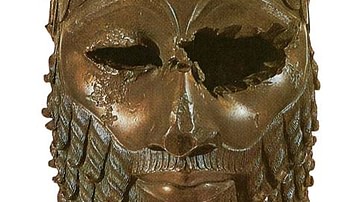
Definition
Sargon of Akkad
Sargon of Akkad (r. 2334 - 2279 BCE) was the king of the Akkadian Empire of Mesopotamia, the first multi-national empire in history, who united the disparate kingdoms of the region under a central authority. He is equally famous today as...
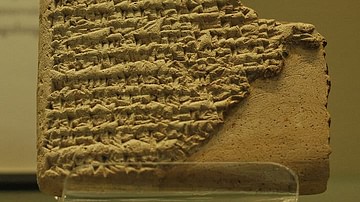
Article
The Legend of Sargon of Akkad
The Legend of Sargon of Akkad (c. 2300 BCE) is an Akkadian work from Mesopotamia understood as the autobiography of Sargon of Akkad (Sargon the Great, r. 2334-2279 BCE), founder of the Akkadian Empire. The earliest copy is dated to the 7th...

Image
Birth of Sargon of Akkad
Clay tablet with the birth of Sargon of Akkad and his argument with the king of Kish, late 3rd millennium BCE, now in the Louvre, Paris
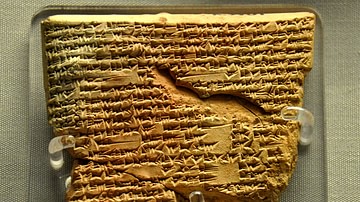
Image
Inscription of the Birth of King Sargon of Akkad
This fragment of a clay tablet narrates in 17 lines of cuneiform inscription the origin of Sargon and recounts how as a baby he was found in a basket floating in a river. Sargon reigned from 2334-2279 BCE. From the library of Ashurbanipal...

Video
Ancient Mesopotamian Warfare in Sumer and Akkad
Warfare was an essential part of the Akkadian Empire, especially under its conquering founder Sargon, and his grandson the god-king Naram-Sin. Their armies were the source of their power. But they were not the first kings of Mesopotamia...

Video
Cradles of Civilization - Sargon of Akkad
In the fifth part of his lecture, Dr. Neiman explains that as the writing system developed, the Sumerian and Akkadian civilizations start describing their world. The autobiography of the Akkadian King Sargon of Akkad is recounted.
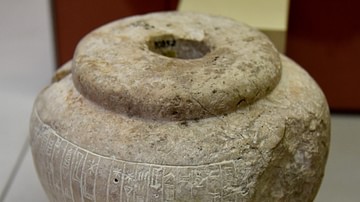
Definition
Gutians
The Gutians were a West Asiatic people who are thought to have lived around the Zagros Mountains in a region referred to as Gutium. They had no written language and all that is known of them comes from their enemies, including the Akkadians...
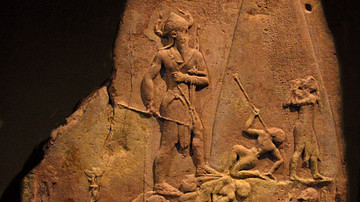
Article
The Curse of Agade: Naram-Sin's Battle with the Gods
The Curse of Agade is a story dated to the Ur III Period of Mesopotamia (2047-1750 BCE) though thought to be somewhat older in origin. It tells the story of the Akkadian king Naram-Sin (r. 2261-2224 BCE) and his confrontation with the gods...

Article
Sargon and Ur-Zababa
Sargon and Ur-Zababa is a Sumerian poem, date of composition unknown, relating the rise to power of Sargon of Akkad (r. 2334-2279 BCE), founder of the Akkadian Empire. The work is classified as a Mesopotamian folktale, relying on motifs such...